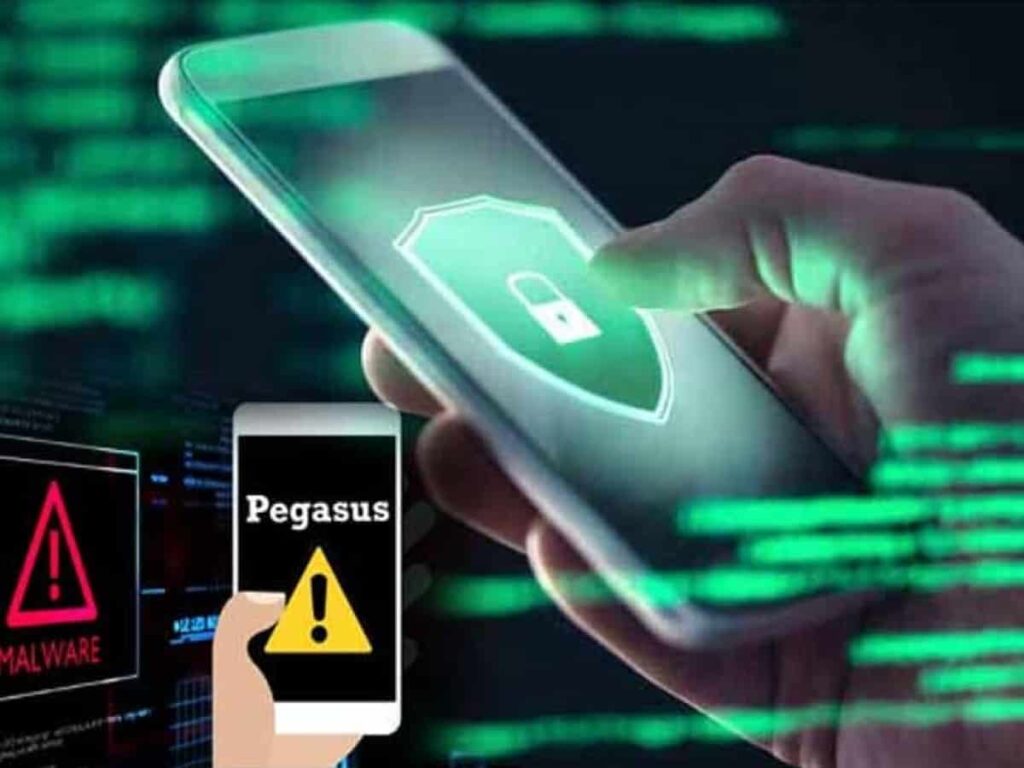Manas Dasgupta
NEW DELHI, July 27: As the prime minister Narendra Modi asked the BJP Members of Parliament to “expose” the opposition for disrupting the House proceedings on Pegasus spyware issue, two veteran journalists N. Ram and Sashi Kumar have moved the Supreme Court for an independent probe headed by a former or sitting top court judge into the mass surveillance case.
Several Congress leaders including the chairman of the Parliamentary committee on Information Technology Shashi Tharoor have demanded Supreme Court-monitored probe into the spyware issue while a senior advocate of the apex court has already moved the top court for taking suo motu cognizance of the government-sponsored snooping on individuals.
The West Bengal chief minister Mamata Banerjee, currently on a visit to Delhi, called on the prime minister at his residence on Tuesday. After the meeting, she told reporters that there should be a Supreme Court-monitored inquiry into the Pegasus scandal involving opposition leaders, two union ministers and 40 journalists revealed as potential targets of surveillance using Israeli Pegasus spyware that is sold only to governments.
The allegations have virtually blocked the monsoon session of parliament with the opposition demanding answers from Modi and the union home minster Amit Shah.
Addressing a meeting of the BJP’s parliamentary party, Modi said the Congress’s attitude was reflected in the fact that it did not turn up for the all-party meeting chaired by him on the COVID-19 pandemic and the vaccination policy of the government. Sources present at the meeting said he asked party MPs to go their constituencies on August 15 and “expose” the opposition that it was not interested in taking up the people’s issues and disrupting the proceedings of the House on Pegasus issue despite the government’s assurances that it was ready to discuss any issue.
Taking up the issue of mass surveillance on at least 142 “potential targets” including journalists, lawyers, ministers, opposition leaders and even civil society activists, N Ram and Sashi Kumar in their petition in the top court said “Such mass surveillance using a military-grade spyware abridges several fundamental rights and appears to represent an attempt to infiltrate, attack and destabilise independent institutions that act as critical pillars of our democratic set-up.”
The petition, likely to come up for hearing within the next few days, sought to investigate if the illegal hacking into the phones using the Pegasus spyware represented an attempt by agencies and organisations to muzzle and chill the exercise of free speech and expression of dissent in India.
It also sought a direction to the Centre to disclose if the government or any of its agencies obtained a license for Pegasus spyware and used it, either directly or indirectly, to conduct surveillance in any manner.
It sought a full disclosure from the government on whether it had authorised the snooping, which seems be an attempt to muzzle free speech and to chill dissent. The government, the petition said, had still not given a straight answer to whether the illegal hack was done with its blessings.
“Respondents [Ministries of Home, Information Technology and Communications] have not categorically ruled out obtaining Pegasus licences to conduct surveillance in their response, and have taken no steps to ensure a credible and independent investigation into these extremely serious allegations,” the petition highlighted.
The spying had caused serious dents on the rights to free speech and privacy. It had no legal basis. In fact, the legal regime for surveillance under Section 5(2) of the Telegraph Act had been completely bypassed. Civilians had become targets.
It claimed that the hack occasioned by the Pegasus spyware constituted a criminal offence punishable under interalia Section 66 (computer-related offences), 66B (punishment for dishonestly receiving stolen computer resource or communication device), 66E (punishment for violation of privacy) and 66F (punishment for cyberterrorism) of the IT Act, punishable with imprisonment and/or fine.
“The attack prima facie constitutes an act of cyber-terrorism that has several grave political and security ramifications, especially considering that the devices of government ministers, senior political figures and constitutional functionaries which may contain sensitive information have been targeted,” it added.
“Surveillance/interception is justified only in cases of public emergency or in the interests of public safety, and the existence of such conditions must be inferred reasonably and cannot be determined solely on the assessment of the government… The hack/interception/decryption occasioned by the Pegasus spyware constitutes a criminal offence,” the petition said.
The Pegasus software, manufactured by Israeli cyber-arms firm NSO Group Technologies Limited, is “extremely advanced and capable of infecting a mobile phone/device without any interaction with the owner.
“It can conduct extremely intrusive surveillance, including tracking and recording calls, reading text and WhatsApp messages, collecting passwords, reading emails, accessing photos and videos, activating camera and microphone and enabling them to record events, and harvesting information from apps. It can be installed as simply as by placing a call on the targeted device, even if the call is not picked up,” the petition submitted.
The NSO Group claims to sell its products, including Pegasus, only to vetted governments to fight “crime and terror.” A forensic analysis of several mobile phones belonging to people targeted for surveillance by the Security Lab of Amnesty International has confirmed Pegasus-induced security breaches.

